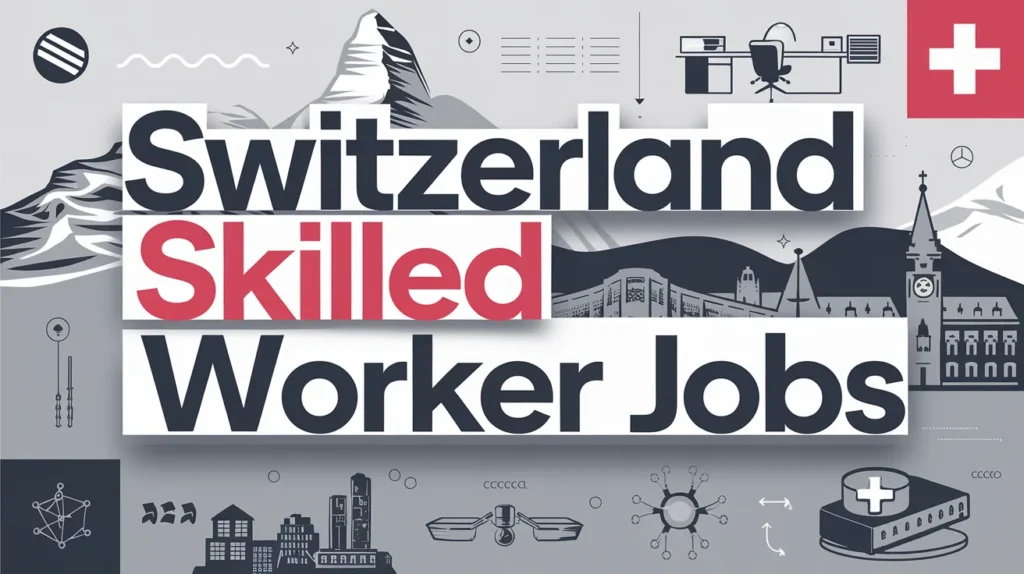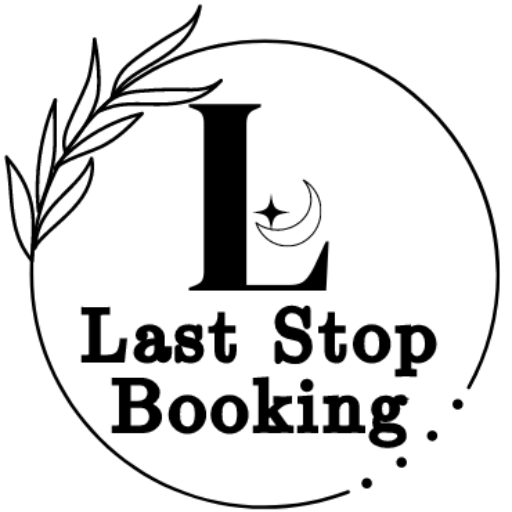
Switzerland needs work in 41 essential callings. The foremost influenced segments incorporate healthcare, building, and IT. This presents noteworthy openings for outside experts to secure work visas and contribute to the Swiss economy.
Switzerland, eminent for its quality of life and vigorous economy, is experiencing work deficiencies in various sectors, as highlighted in the 2024 EURES Report on deficiencies and surpluses.
Foreign experts fascinated by moving to Switzerland may benefit from these work deficiencies. A Swiss work visa permits non-citizens to live and work in Switzerland, and candidates within the previously mentioned areas are most likely to secure work due to the high demand for their skills.
List of Switzerland Skilled Worker Jobs
Following is the list of Occupations accessible in Switzerland with a work visa:
Healthcare Workers:
Nurses: Numerous callings are in tall demand.
Doctors: Particularly in divisions and rustic areas.
Construction Industry:
Engineers: Foundation ventures require gifted workers.
Mechanical Engineers: Vital for mechanical and fabricating industries.
IT:
Developers: Imperative for advanced change projects.
IT Security Experts: The requirement is developing due to expanding cyber threats.
Education:
Teachers: Different levels center on STEM subjects.
University teachers: Specializations in regions of higher research.
Legal Specialists:
Corporate attorneys: Worldwide law and compliance.
Also Check: Canada Work Permit without Job Offer Nov 2024 (Update)
General Requirements
- Application frame Most government offices make the shapes accessible on their websites, but a few permit online applications.
- Copy of visa Critical for the proper documentation of individual data
- Confirmation that the work opening is promoted by the territorial business office (RAV) and inside the EURES framework (inform your RAV advisor)
- Copies of work promotions distributed in proficient diaries, national weekly or everyday daily papers in Switzerland, pro online entrances, and social media (such as LinkedIn)
- Information on other work look endeavors in Switzerland and the EU/EFTA range (as standard within the individual sector)
- Confirmation from a designated work agent
- Information on applications received and reasons that they cannot be considered (RAV workplaces can give important surveys, for example)
- Curriculum vitae in unthinkable form
- Proof of capabilities such as instruction certificates and references
- Copies of archives within the unique dialect, as well as certified interpretations on the off chance that the records are not in one of Switzerland’s official dialects or English
- Reasons the opportunity must be filled.
- Job portrayal or obligations of the position to be filled and data on the company
- Contract of business (must be marked at slightest by the manager; typically considered authoritative by the specialists), or representative exchange affirmation from the outside manager, expressing compensation, expat remittances, and cost arrangements
Benefits
- Swiss workers employed for at least a year are entitled to a minimum of four weeks of fully paid vacation per year, which increases to five weeks for employees over the age of 20.
- Additionally, longer excursions can be arranged separately or collectively, and managers cannot make any installments in place of vacation.
- Pregnant representatives are entitled to 14 weeks of paid maternity take-off. Amid this period, the worker gains a maternity advantage proportionate to 80% of her ordinary compensation, capped at 196 CHF ($212) per day, or approximately $20,776 throughout her maternity leave.
- Fathers are entitled to two weeks of paid paternity leave within six months of their child’s delivery. Paternity benefits are comparable to maternity benefits, i.e., 80% of the father’s compensation, capped at 196 CHF per day, or approximately $3,000.
- Paternity take-off can be part of the process, but be that as it may, a worker inclines toward it inside the six-month window it lasts.
- Employees can take up to 14 weeks of childcare leave to nurture debilitated or genuinely harmed children with benefits paid out by social security. In addition, workers are entitled to obligatory childcare leave of three days at a time (capped at ten days yearly), during which they can remain back to nurture debilitated children.
- Employers who have a lasting presence in Switzerland are committed to paying social security finance charges to their representatives. The charge rates vary by canton, and they range from 9.463% in Geneva to 23.40% in Zurich.
- These finance commitments cover annuities, unemployment protections, incapacity, and work-related harm insurance.
- Swiss voters have repeatedly rejected endeavors to organize a government. Minimum wage and compensation are generally decided by collective bargaining.
- In the past decade, three Swiss cantons have had the lowest compensation, ranging from 19 CHF ($20.64) per hour in Ticino to 23 CHF ($25) per hour in Geneva, the highest anywhere in the world.
- Swiss labor law separates between average additional time and so-called Extra Hours. Additional time covers any time that goes beyond the working hours expressed in the business contract. Extra time, as a rule, comes into play when an employee’s most extreme working hours are less than the government’s required maximum of 45 – 50 hours per week.
- For illustration, if a worker is contracted to work 37 hours per week, any work that surpasses 37 hours per week would be considered overtime, as long as it doesn’t exceed the statutory maximum of 45 – 50 hours per week.
- On the other hand, additional hours allude to any time worked past the government’s stipulated working hours. Normal additional time and additional hours must be compensated with time off instead of additional time or a 25% premium in expansion to the employee’s typical wages.
Salary
Wages change by canton, with a minimum hourly wage for gifted experts coming to CHF 24.56, roughly CHF 4,470 monthly. In Geneva, the lowest wage is CHF 24.32 per hour. For specialized assignments, this may increase to CHF 29.45 per hour.
Sum Up
Switzerland features a double framework for permitting outsiders to work within the nation. The primary framework concerns citizens from the European Union and the European Free Exchange Affiliation (EFTA). The following category is open to specialists from all other nations’ third states, as they are alluded to and conceded in constrained numbers.
